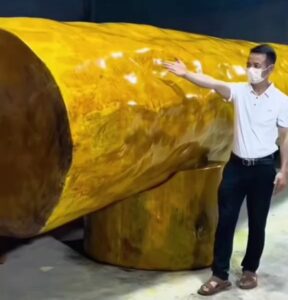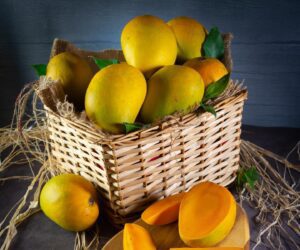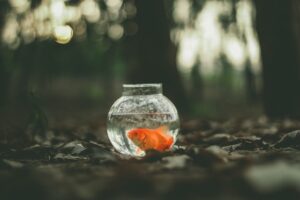Narayana Peesapaty, an Indian scientist, has developed edible cutlery made from natural ingredients, offering an innovative alternative to traditional plastic utensils. This breakthrough not only addresses environmental concerns but also promotes sustainable consumption practices.
 Pin
Pin Image by Founcy Spoon from Pixabay
Table of Contents
The Birth of Edible Cutlery
Narayana Peesapaty, a former scientist from Hyderabad, India, was deeply troubled by the environmental damage caused by disposable plastic cutlery. He noticed that after meals, heaps of plastic spoons and forks were discarded, contributing to the growing plastic waste problem. Determined to find a solution, he began experimenting with various natural ingredients to create an alternative that wouldn’t harm the environment. After numerous trials, he developed edible cutlery made from a mix of sorghum (jowar), rice, and wheat flour. This innovation not only provided a sustainable alternative to plastic but also offered a nutritious option for consumers. His company, Bakeys, started producing these edible utensils, aiming to reduce plastic waste and promote eco-friendly practices. The journey from a simple idea to a tangible product was filled with challenges, but Peesapaty’s determination and vision led to the creation of a product that could potentially revolutionize the way we approach disposable cutlery.
 Pin
Pin Image from Wikimedia Commons
The Environmental Impact of Plastic Cutlery
Plastic cutlery is everywhere, from takeout meals to picnics. But after a single use, these utensils often end up in landfills or oceans, taking hundreds of years to decompose. This contributes significantly to environmental pollution. Wildlife, especially marine animals, can mistake small plastic pieces for food, leading to injury or death. Moreover, as plastic breaks down, it releases harmful chemicals into the soil and water, affecting ecosystems and human health. The production of plastic also consumes fossil fuels, adding to carbon emissions. With millions of tons of plastic waste generated annually, the planet faces a growing crisis. Traditional recycling methods can’t keep up, and many plastics aren’t recyclable at all. This situation has led to a pressing need for sustainable alternatives. Edible cutlery, like that developed by Narayana Peesapaty, offers a promising solution. By replacing single-use plastics with biodegradable, consumable utensils, we can reduce waste and lessen our environmental footprint. It’s a small change with the potential for a big impact.
The Health Benefits of Edible Cutlery
Edible cutlery isn’t just good for the environment; it’s beneficial for our health too. Made primarily from sorghum (jowar), rice, and wheat flour, these utensils are free from preservatives and artificial additives. Sorghum is rich in nutrients like calcium, iron, and fiber, contributing to a balanced diet. Unlike plastic cutlery, which can leach harmful chemicals into food, edible spoons and forks pose no such risks. They come in various flavors, such as ginger-cinnamon and garlic, adding a tasty twist to meals. Plus, they have a long shelf life when stored properly, making them convenient for everyday use. After enjoying your meal, you can consume the utensil as a crunchy snack, or if you choose to dispose of it, it decomposes naturally within a few days, leaving no harmful residue. This innovation not only addresses environmental concerns but also promotes healthier eating habits, offering a practical and wholesome alternative to traditional disposable cutlery.
Challenges in Promoting Edible Cutlery
Introducing edible cutlery to the market wasn’t a walk in the park for Narayana Peesapaty. Initially, many people were skeptical about the durability and practicality of these utensils. Concerns arose about whether they could handle hot foods or if they would break easily. Overcoming these doubts required extensive demonstrations and education. Additionally, producing edible cutlery at a competitive price point was challenging. Plastic utensils are mass-produced and incredibly cheap, making it hard for a new product to compete. Scaling up production to meet growing demand also posed difficulties. Developing machinery and processes to manufacture large quantities efficiently took time and resources. Despite these hurdles, Peesapaty’s persistence paid off. Through continuous innovation and raising awareness about the environmental benefits, edible cutlery began gaining acceptance. Collaborations with eco-friendly organizations and participation in sustainability events helped in promoting the product. While challenges remain, the journey of edible cutlery showcases how determination and a clear vision can lead to meaningful change.
The Journey of Bakeys and Market Reception
In 2010, Narayana Peesapaty founded Bakeys, aiming to replace disposable plastic cutlery with edible alternatives. Starting with spoons, the company expanded its product line to include forks and chopsticks, all made from natural ingredients like sorghum, rice, and wheat flour. Initially, gaining market acceptance was challenging. Consumers were hesitant, questioning the durability and taste of the edible utensils. However, as awareness of environmental issues grew, more people began to appreciate the innovation. Bakeys received significant media attention, leading to increased interest and orders. Crowdfunding campaigns further boosted production capabilities, allowing the company to scale up and reach a wider audience. Collaborations with eco-friendly organizations and participation in sustainability events also helped in promoting the product. Today, Bakeys’ edible cutlery is used in various settings, from restaurants to events, symbolizing a shift towards sustainable consumption. The journey reflects the growing consumer demand for products that are both practical and environmentally friendly.
The Global Impact and Future of Edible Cutlery
Edible cutlery is gaining traction worldwide as a sustainable alternative to plastic utensils. Companies like Biotrem in Poland and Edible Provisions in the USA are innovating with materials such as wheat bran and other natural ingredients to create durable, edible utensils. This global movement reflects a growing awareness of environmental issues and a desire for practical solutions. As more consumers and businesses adopt edible cutlery, we can anticipate a significant reduction in plastic waste. The future of dining may well include a variety of edible utensils, catering to different tastes and dietary needs, all while promoting sustainability. This shift not only addresses environmental concerns but also encourages a broader cultural change towards mindful consumption and waste reduction.
The Broader Implications of Edible Cutlery
Narayana Peesapaty’s invention of edible cutlery goes beyond just replacing plastic utensils. It challenges us to rethink our consumption habits and the materials we use daily. By choosing edible utensils, individuals make a statement about their commitment to sustainability. This innovation also opens doors for further research into biodegradable and edible products, potentially leading to more eco-friendly solutions in various industries. Moreover, it highlights the importance of supporting local agriculture, as sourcing ingredients like sorghum directly from farmers can boost rural economies. The success of edible cutlery can inspire other entrepreneurs to develop creative solutions to environmental challenges, fostering a culture of innovation and responsibility. As consumers become more conscious of their environmental impact, products like edible cutlery can drive a significant shift towards sustainable living. It’s a reminder that small changes in our daily choices can collectively lead to substantial positive effects on the planet.































